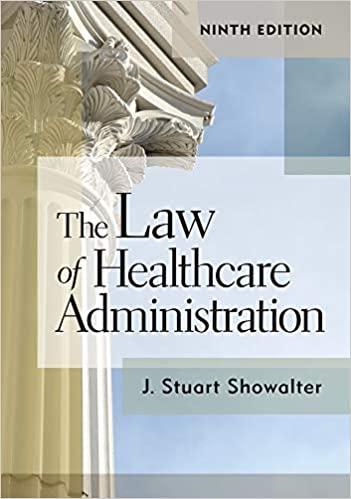Question
1-Maximum number of hours an employee can work a day-full answer to get mark A-8 B-12 C-10 D-7.5 2-Maximum number of hours an employee can
1-Maximum number of hours an employee can work a day-full answer to get mark
A-8
B-12
C-10
D-7.5
2-Maximum number of hours an employee can work in a week
A-36
B-40
C-48
D-38
3-How many consecutive hours must an employee receive aff work each day
A-8
B-9
C-10
D-11
4-How many hours must an employee receive in between shifts unless an agreement says otherwise
A-1
B-4
C-8
D-12
5-When will the above shift rule not apply?(2 answers)
A-always applies
B-if the total time worked on both shifts is more than 13 hours or with split shifts
C-same as B but not with split shifts
D-none of the above
6-What is the general rule about an employee's right to an eating break?
A-employee must not work for more than five hours in a row without getting a 15-minute eating period (meal break) free from work
B- employee must not work for more than five hours in a row without getting a 45-minute eating period (meal break) free from work
C- employee must not work for more than five hours in a row without getting a 60 minute eating period (meal break) free from work
D-employee must not work for more than five hours in a row without getting a 30 minute eating period (meal break) free from work
7-What is the general rule about overtimepay?
A-overtime pay is 1 times the employee's regular rate of pay after 42 hours
B- overtime pay is 1 times the employee's regular rate of pay after 40 hours
C-overtime pay is 1 times the employee's regular rate of pay after 44 hours
D- overtime pay is 1 times the employee's regular rate of pay after 48 hours
8-What is the general rule about vacation pay (2 parts to the answer)
A- under 5 years, 3% over 5 years 6%
B-under 5 years, 4% over 5 years 6%
C-under 5 years 4%, over 5 years 8%
D-none of the above
9-What is the general rule for sick day entitlement?
A-up to 2 days each year
B-up to 3 days each year
C-up to 4 days each year
D-up to 5 days eachy ear
10-How much notice if any is an employee entitled to if they have continuously worked more than 1 year but less than 3?
A-1 week
B-2 weeks
C-no notice unless agreed on
D-depends on what court decides
11-Independent Contractors
A-can be sued for bad work by the third party, employees can not
B-get t-4 slips and deduct expenses
C-can't be told what to do
D-none of the above
12-Independent contractors
A-might be covered by the ESA
B-are covered by the ESA
C-are not covered by the ESA
D-are covered in their collective agreements
13-Employees with less than 5 years of work experience are entitled to how many weeks vacation after the first year?
A-2
B-3
C-none unless in contract
D-none of the above
14- Do employees get paid more for working Sundays, or for working late at night?
A-Yes after 4 hours
B-yes 2 times their salary
C-Yes 1.5 times their salaery
D- There is nothing in theESAthat requires employees to be paid more for working Sunday
15-Can you contract out of the ESA?
A-no
B-yes but never for less than what the minimum is under ESA
C-yes
D-yes if you are not a federal employee
16-Can an employer require a dress code?
A-no
B-yes
C-yes subject to any existing collective agreement
D-only if its police, ambulance, fire, nurse (essential service industry)
17-What are the rules about sexual harassment under the ESA
A-there are none
B-same as under the Ontario Human Rights Code
C-same as under Occupational Health & Safety Act
D-same as under federal laws
18-If I need to take time off because my child died how many weeks can I take off and still have my job protected for when I come back?
A-104 weeks but only if you worked 6 consecutive months
B-104 weeks but only if you worked 9 consecutive months
C-104 weeks
D-104 weeks but only ifyou worked 3 consecutive months
19. Family medical leave is...
A-no such thing
B-up to 2 days per year
C-up to eight (8) weeks in a 26 week period
D-up to 3 days in one year
20.Bereavement leave is up to...
A-2 days per year
B-3 days per year
C-up to 8 weeks per year
D-up to 8 weeks in a 26 week period
Step by Step Solution
There are 3 Steps involved in it
Step: 1

Get Instant Access to Expert-Tailored Solutions
See step-by-step solutions with expert insights and AI powered tools for academic success
Step: 2

Step: 3

Ace Your Homework with AI
Get the answers you need in no time with our AI-driven, step-by-step assistance
Get Started


